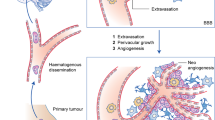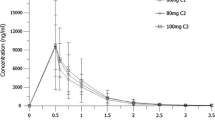Abstract.
Purpose: Bendamustinehydrochloride (bendamustine) is an alkylator with anticipated antimetabolic activity. It has shown activity in malignant lymphoma and breast cancer. Up to now there are no reports about the activity of bendamustine in the treatment of brain metastases. We report on a 38-year-old woman with brain metastases from breast cancer. The first diagnosis of an invasive ductal, hormone receptor negative breast cancer was made in October 1997, stage pT1c pN2 (11/11)cM0 – G3. After lumpectomy and resection of axillary lymph nodes, the patient received adjuvant chemo- and radiotherapy. Twenty six months after the first diagnosis, bone metastases occurred and were treated with radiotherapy. One month later, multiple liver metastases developed which were treated with trastuzumab and paclitaxel. Four months later, progress of the liver metastases and malignant infiltration of bone marrow with thrombopenia occurred. Methods: Chemotherapy with bendamustine at a dose of 150 mg/m2 on day 1and 2 was initiated. Two days later, the patient suffered from central facial palsy and subsequent computed tomography (CT) revealed three brain metastases in the frontal, parietal and occipital region. Because of the advanced liver metastases with clinical and laboratory signs of liver insufficiency and the reduced performance status of the patient, chemotherapy with bendamustine was continued and no local treatment of the brain metastases was performed. Results: After two courses of bendamustine, ultrasound showed regression of the liver metastases. Liver enzymes decreased, platelets increased, and the patient's performance status improved. Additionally, two of the three brain metastases were no longer detectable by CT, the third had decreased compared to the time of diagnosis. Conclusion: To the best of our knowledge, this is the first report describing major activity of bendamustine in cerebral metastases. Thus, it may be considered as another therapeutic strategy against metastatic brain cancer. However, this finding warrants further investigation in clinical trials.
Similar content being viewed by others
Author information
Authors and Affiliations
Additional information
Electronic Publication
Rights and permissions
About this article
Cite this article
Zulkowski, .K., Kath, .R., Semrau, .R. et al. Regression of brain metastases from breast carcinoma after chemotherapy with bendamustine. J Cancer Res Clin Oncol 128, 111–113 (2002). https://doi.org/10.1007/s00432-001-0303-4
Received:
Accepted:
Issue Date:
DOI: https://doi.org/10.1007/s00432-001-0303-4




